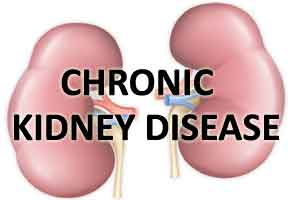- Home
- Editorial
- News
- Practice Guidelines
- Anesthesiology Guidelines
- Cancer Guidelines
- Cardiac Sciences Guidelines
- Critical Care Guidelines
- Dentistry Guidelines
- Dermatology Guidelines
- Diabetes and Endo Guidelines
- Diagnostics Guidelines
- ENT Guidelines
- Featured Practice Guidelines
- Gastroenterology Guidelines
- Geriatrics Guidelines
- Medicine Guidelines
- Nephrology Guidelines
- Neurosciences Guidelines
- Obs and Gynae Guidelines
- Ophthalmology Guidelines
- Orthopaedics Guidelines
- Paediatrics Guidelines
- Psychiatry Guidelines
- Pulmonology Guidelines
- Radiology Guidelines
- Surgery Guidelines
- Urology Guidelines
Allopurinol offers protection against chronic kidney disease

The drug allopurinol used to manage gout may offer protection against the development of kidney disease, according to a new study.
Traditionally there has been concern from physicians that this medication may increase the risk of Chronic Kidney Disease (CKD), despite a lack of clear data supporting this relationship. As such, many patients find themselves undertreated, leading to poorer gout outcomes.
Researchers from Boston University School of Medicine (BUSM) utilized The Health Improvement Network (a general practitioner medical records database representative of the United Kingdom's general population) to evaluate kidney function in gout patients after starting allopurinol.
They found that of the more than 4,000 patients started on full-dose allopurinol for prevention of gout flares, 12.2 percent had developed Stage 3 CKD after an average of five years of treatment, as compared to 13.1 percent of non-users over a similar period. The researchers conclude that the use of allopurinol in the management of gout is not only safe but also potentially beneficial in reducing the risk of kidney disease.
Tuhina Neogi, MD, Ph.D., corresponding author of the study and professor of medicine and epidemiology at BUSM and BU School of Public Health, sees these results as an important step forward in the long-term treatment of gout. "Ultimately, we hope these results will be disseminated to PCPs and internists taking care of patients with gout (since the bulk of patients with gout are managed in primary care) so that allopurinol is not held or stopped when a patient experiences a creatinine bump," said Neogi, a rheumatologist at Boston Medical Center.
Gout is the most common inflammatory arthritis in the United States (affecting 3.9 percent of Americans, more than eight million adults. Gout flares are caused by the formation of urate crystals within the joints, leading to significant pain and swelling. Allopurinol is the most frequently used medication to manage gout, including the long-term prevention of gout flares by reducing the amount of urate circulating through the blood.
For more details click on the link: doi:10.1001/jamainternmed.2018.4463

Disclaimer: This site is primarily intended for healthcare professionals. Any content/information on this website does not replace the advice of medical and/or health professionals and should not be construed as medical/diagnostic advice/endorsement or prescription. Use of this site is subject to our terms of use, privacy policy, advertisement policy. © 2020 Minerva Medical Treatment Pvt Ltd